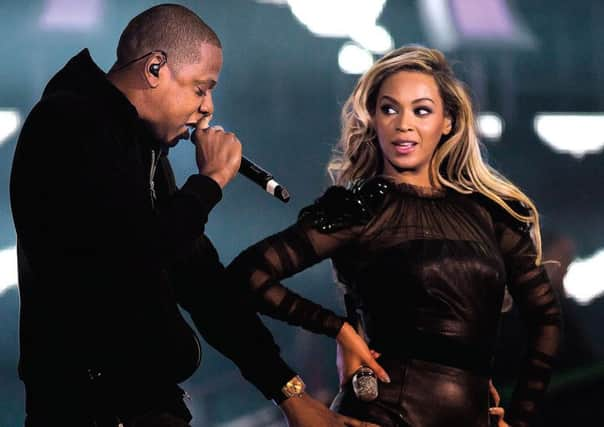Dani Garavelli: Beyonce bossy ban bid misses mark


It isn’t even that – as a chanteuse whose great “feminist anthem” revolves around women’s supposed craving for marriage – she’s the wrong person to front it.
It’s that singling out bossy, which, used appropriately, conjures up a lovely image of a truculent toddler trying to rule the roost – seems unfair when there is an entire lexicon of insults levied at females in an attempt to shut them up. Stroppy, strident, shrill, shrewish, nagging, hysterical, uppity, pert, harpie, fishwife – and that slippery adjective that masquerades as a compliment, feisty – we’d have to ban them all if we wanted to solve the problem of a lack of women in leadership roles through linguistic censorship.
Advertisement
Hide AdAdvertisement
Hide AdAnd those words aren’t even the worst of it. When it comes to impressionable teenagers, the ones most damaging to self-esteem are surely those which feature in rap songs such as Beyoncé’s husband Jay – “I’ve got 99 problems and a bitch ain’t one” – Z sings. When every second track refers to women as “ho’s” and “tramps”, praises their booty over the brains and treats them as pieces of meat to be humped and dumped, being told she can be a wee bit overbearing is likely to be the least of a teenage girl’s problems.
Of course, I understand where Beyoncé, Facebook chief Sheryl Sandberg and chief of the US Girl Scouts Anna Maria Chavez were coming from when they said their piece in the Wall Street Journal last week. The lack of women in top jobs continues. We know girls outperform boys at school, have outnumbered men at UK universities for more than 20 years, and are more likely to gain a good degree. So why are so few in parliament, the judiciary, on the boards of FTSE 100 companies? Anywhere they have to compete with men to be heard – on committees, in conferences, on news programmes, comedy-show panels – they are under-represented. Could it be they have learned from an early age that assertiveness and vehemence are exclusively male traits?
The Ban Bossy campaigners think so. They say by 11, girls’ confidence is already waning. As forceful boys are praised for “leadership qualities” and forceful girls criticised as overly opinionated, the girls stop raising their heads above the parapet. (Parents of teenage boys may find this difficult to swallow.) At secondary school, girls seem to have the upper hand. More sophisticated, gregarious and focused than their male peers, they negotiate the academic and social minefield with apparent ease, while the gawky boys skulk in corners. Nevertheless, by their late 20s, the men will be earning more in more senior positions. There are many reasons for this. But studies do suggest women are less likely to trumpet their achievements and put themselves forward to front important projects. They are also more likely to be self-deprecating and to suffer “imposter syndrome”, a sense they are frauds liable to be exposed at any moment.
Of course, it is possible some of this self-doubt stems from a childhood taunt. A parent or a brother describing them as bossy may have taught them an early lesson. But then growing up is just one giant exercise in gender stereotyping. From the moment they are popped in their first blue or pink babygro, infants are being conditioned: roughhousing for boys, hair-plaiting for girls, doctors’ outfits for boys, nurses’ for girls, adventurous super-heroes versus pretty princesses. The message that boys are active and girls passive is ubiquitous.
And it persists. In the workplace, women hear forthright men described as “no-nonsense”, while they are labelled “difficult”. They hear men who lobby for a pay rise praised as “go-getters”, while women who demand more are “whingers”.
Set against this mass cultural indoctrination what impact could banning one word – bossy – possibly have? Would telling your daughter her commanding personality is evidence of her leadership potential be enough to counter a lifetime’s worth of subliminal messages designed to convince her a woman’s role is as a people-pleaser? And what if she really was bossy – autocratic and imperious – as opposed to merely good at sorting things out? Are those qualities you would want to encourage?
The best way of tackling discrimination is surely to live the change we want to see. Last week, neuroscientist Professor Gina Rippon said there was no difference in how the brains of girls and boys were wired; that differences in perspective all come down to the “drip drip drip” of conditioning. When it comes to our own children, we must make sure we aren’t reinforcing those stereotypes by encouraging girls to sit colouring in while boys are sword fighting, by assigning gender-oriented chores – girls do dishes, boys take out the bins – or by praising girls’ looks and boys’ achievements. And we need to give them better role models: sports people, scientists and world leaders as opposed to singers and reality TV stars.
If girls grow up believing they can be whatever they choose, they will have the courage to make it happen. And hopefully words like bossy and whiny and shrill – used to undermine them – will simply ricochet off their armour-plated confidence.
Twitter: @DaniGaravelli1